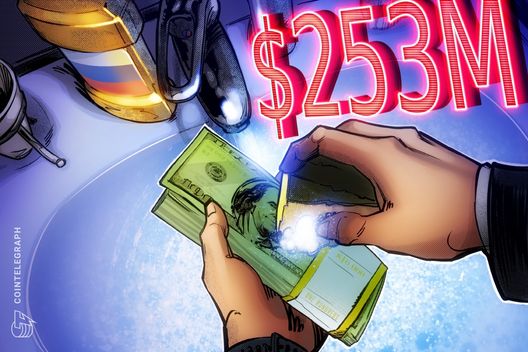

I am sorry, I encountered an error. Let me try that again. A crypto executive is facing serious charges for allegedly orchestrating a large-scale money laundering scheme that funneled over half a billion dollars through the U.S. financial system, according to the Department of Justice (DOJ). Iurii Gugnin, the founder of a U.S.-based cryptocurrency payments firm, stands accused of turning his company into a "covert pipeline for dirty money," as described by Assistant Attorney General John A. Eisenberg.
The DOJ alleges that Gugnin used his companies, Evita Investments and Evita Pay, to process approximately $530 million in payments between June 2023 and January 2025. He is said to have concealed the origins and purposes of these funds, primarily routing them through U.S. banks and cryptocurrency exchanges using Tether, a stablecoin pegged to the U.S. dollar. The funds were allegedly tied to sanctioned Russian banks, including Sberbank, VTB, Sovcombank, and Tinkoff, and were used to help Russian end-users acquire sensitive U.S. technology.
Gugnin, a 38-year-old Russian national residing in Manhattan, was arrested and arraigned on Monday, and has been ordered to be held without bail pending trial. He faces a 22-count indictment that includes charges of wire and bank fraud, violating U.S. sanctions and export controls, money laundering, and failing to implement legally required anti-money laundering protocols. If convicted on all counts, Gugnin could face a lengthy prison sentence.
Prosecutors claim that Gugnin maintained ties to Russian intelligence, as well as officials in both Iran and Russia. He allegedly doctored over 80 invoices and lied to banks and exchanges to mask funds tied to sanctioned Russian institutions. The DOJ asserts that Gugnin made false statements when registering Evita Pay as a money transmitting business in Florida and ignored Anti-Money Laundering rules.
The case highlights the increasing scrutiny of the cryptocurrency industry and its potential use for illicit activities. Law enforcement agencies are cracking down on individuals and entities that exploit digital assets to evade sanctions and launder money. Assistant Attorney General Eisenberg emphasized the DOJ's commitment to prosecuting those who undermine national security by enabling foreign adversaries to circumvent sanctions and export controls. "The Department of Justice will not hesitate to bring to justice those who imperil our national security by enabling our foreign adversaries to sidestep sanctions and export controls,” Eisenberg stated. This case serves as a warning to those who seek to use cryptocurrency for illegal purposes, demonstrating that the U.S. government is determined to hold them accountable.